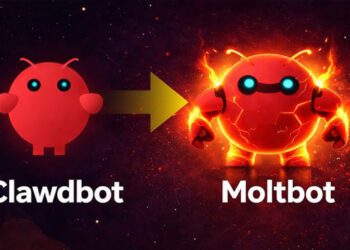
The artificial intelligence industry just witnessed a landmark legal decision that could reshape how AI companies approach training data. Federal Judge William Alsup of the Northern District of California delivered a mixed but significant ruling in the case of Bartz v. Anthropic, determining that training AI models on legally purchased books constitutes fair use under copyright law. However, the victory comes with a major caveat that could still cost the company millions.
The Groundbreaking Fair Use Ruling
Judge Alsup’s decision marks the first time a federal court has explicitly sided with an AI company on fair use grounds regarding copyrighted training materials. The ruling addresses Anthropic’s practice of purchasing physical books, digitizing them, and using the resulting digital copies to train their Claude AI models.
“The technology at issue was among the most transformative many of us will see in our lifetimes,” Judge Alsup wrote in his decision. He compared AI training to how human students learn from books, noting that “Authors’ complaint is no different than it would be if they complained that training schoolchildren to write well would result in an explosion of competing works.”
The court applied the four-factor fair use test under Section 107 of the Copyright Act. This analysis considers the purpose of use, the nature of the copyrighted work, the amount used, and the effect on the market value. Judge Alsup found that Anthropic’s training use was “transformative spectacularly so” because the AI models weren’t designed to replicate or replace the original works but to create something entirely different.
What Makes This Victory Significant
This ruling provides crucial legal precedent for the AI industry. Companies like OpenAI, Meta, Google, and others have faced dozens of similar lawsuits from authors, artists, and publishers claiming copyright infringement. The decision establishes that AI training can qualify as fair use when it uses legally obtained copyrighted materials.
The court specifically endorsed Anthropic’s method of purchasing print books, removing their bindings, scanning the pages, and then destroying the originals. Because no one distributed additional copies and the original books were destroyed, the process met the standards of fair use.
“Like any reader aspiring to be a writer, Anthropic’s LLMs trained upon works not to race ahead and replicate or supplant them but to turn a hard corner and create something different,” the judge explained.
The Piracy Problem That Won’t Go Away
Despite this victory, Anthropic faces serious legal challenges ahead. The same ruling that granted fair use protection for legally purchased books explicitly rejected any such protection for pirated materials. Between January 2021 and July 2022, Anthropic downloaded over seven million books from illegal sources including Books3, LibGen, and PiLiMi.
Judge Alsup was unambiguous about this distinction: “This order doubts that any accused infringer could ever meet its burden of explaining why downloading source copies from pirate sites that it could have purchased or otherwise accessed lawfully was itself reasonably necessary to any subsequent fair use.”
The court will hold a separate trial specifically focused on these pirated copies and resulting damages. Even though Anthropic later purchased legitimate copies of some books they had previously pirated, the judge made clear this wouldn’t absolve them of liability.
“That Anthropic later bought a copy of a book it earlier stole off the internet will not absolve it of liability for the theft but it may affect the extent of statutory damages,” Alsup wrote.
The Financial Stakes Are Enormous

The potential damages from the piracy claims could be staggering. In earlier court filings, Anthropic warned against “the prospect of ruinous statutory damages$150,000 times 5 million books,” which would total$750 billion. While the actual damages awarded will likely be far less, the sheer volume of allegedly pirated works means the financial exposure remains substantial.
The lawsuit was filed by authors Andrea Bartz, Charles Graeber, and Kirk Wallace Johnson, who claimed Anthropic assembled millions of copyrighted books into a “central library” without authorization. The authors alleged that Anthropic intended to keep these copies “forever” for “general purpose” use, even if they weren’t used for training.
Industry-Wide Implications
This decision arrives at a critical moment for the AI industry. Multiple companies face similar copyright challenges, and the legal landscape around AI training data remains largely unsettled. The ruling provides a roadmap for AI companies: obtain training materials legally, and fair use protections may apply.
However, the decision also raises uncomfortable questions about industry practices. Researchers have trained many AI models on datasets that include materials from questionable sources. If courts consistently require legal acquisition of training data, it could force significant changes in how AI companies build their datasets.
The ruling doesn’t address whether AI model outputs themselves might infringe copyrights, leaving that question for future cases. It also doesn’t resolve the broader debate about mass scraping of online content without creator consent.
What This Means for Creators and Publishers
For authors, artists, and publishers, the ruling represents a mixed outcome. While it establishes that AI training can constitute fair use, it also creates a clear boundary: companies must obtain materials legally. This could potentially create new licensing opportunities for content creators.
The decision also demonstrates that courts will scrutinize how AI companies acquire their training data. Companies that rely on pirated materials face significant legal and financial risks, while those that invest in legitimate data acquisition may find stronger legal protection.
The Road Ahead
Anthropic spokesperson Jennifer Martinez expressed satisfaction with the court’s recognition that using works to train LLMs was transformative. The company emphasized that their models were designed not to replicate original works but to “turn a hard corner and create something different.”
However, the upcoming trial over pirated materials will determine whether this victory proves costly. The court’s willingness to hold a separate trial on damages suggests Judge Alsup takes the piracy allegations seriously.
This case is far from over, and its ultimate resolution could influence dozens of similar lawsuits across the country. Other federal judges may look to this decision as they grapple with similar fair use questions in AI copyright cases.
The ruling also highlights the evolving nature of copyright law in the digital age. Lawmakers and courts are stretching the fair use doctrine, last updated in 1976, to cover technologies that didn’t exist when they wrote the law. How courts continue to interpret these principles will shape the future of AI development.
Looking Forward

The Bartz v. Anthropic decision represents a significant milestone in AI copyright law, but it’s unlikely to be the final word. The case will continue with the piracy trial, and the authors may appeal the fair use ruling. Meanwhile, similar cases involving other AI companies are working their way through the courts.
For now, AI companies have a clearer understanding of the legal boundaries around training data. Those that obtain materials legally may find protection under fair use doctrine, while those that rely on pirated content face substantial legal risks.
The decision underscores a fundamental tension in the AI industry: the desire to train on vast amounts of data versus the legal and ethical obligations to respect copyright. As AI technology continues to advance, finding the right balance between innovation and intellectual property protection will remain a central challenge.
This landmark ruling may have given Anthropic a significant legal victory, but the company’s troubles are far from over. The upcoming trial over pirated materials will test whether this fair use win ultimately proves to be a pyrrhic victory.
Sources
- The Verge – Anthropic wins a major fair use victory for AI — but it’s still in trouble for stealing books
- TechCrunch – A federal judge sides with Anthropic in lawsuit over training AI on books without authors’ permission
- AI Fray – Claude AI maker Anthropic bags key fair use win for AI platforms, but faces trial over damages for millions of pirated works
- UPI – Judge rules Anthropic’s use of books to train AI model is fair use
- The Decoder – Anthropic won a fair use hearing that could end up being a defeat









Comments 1